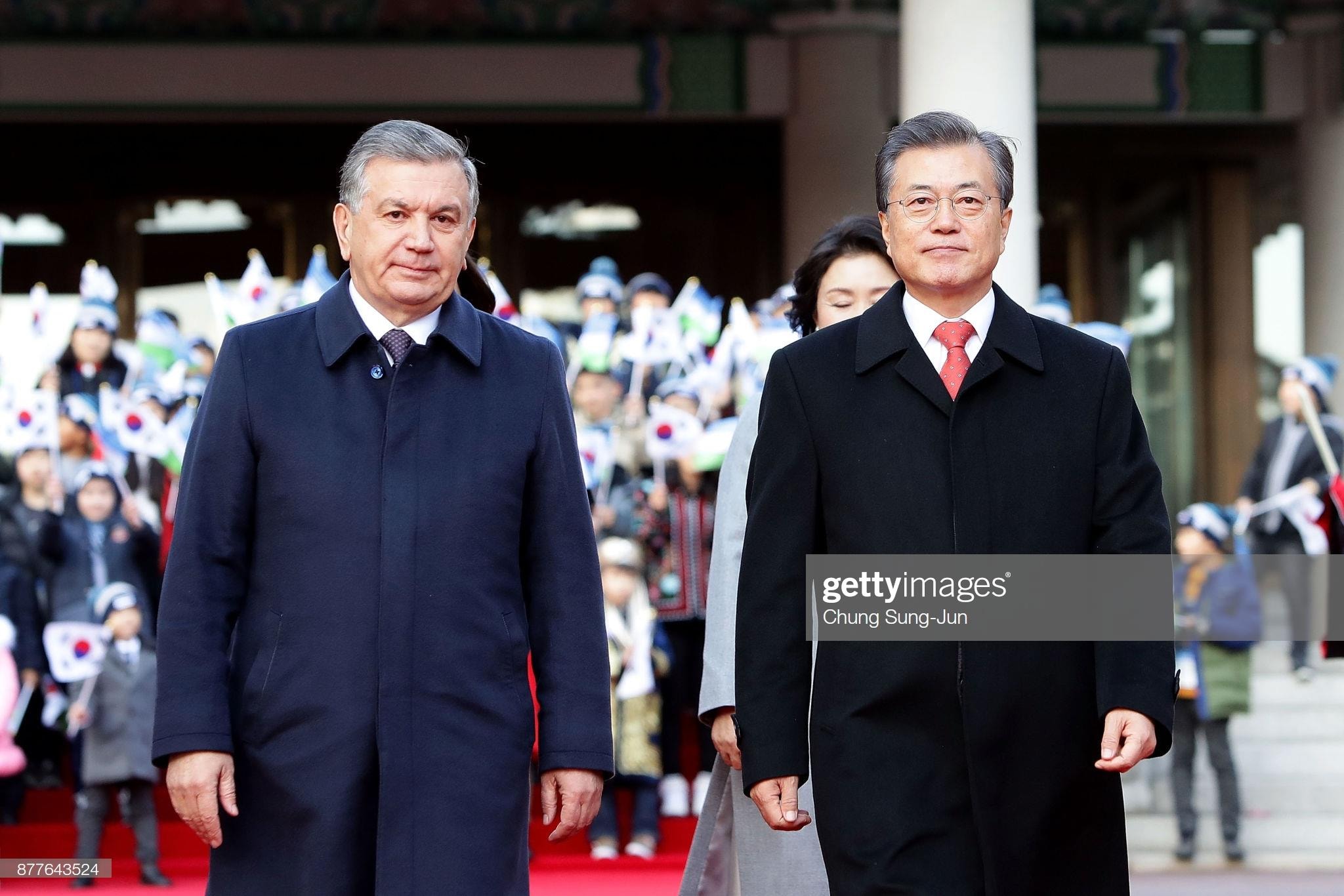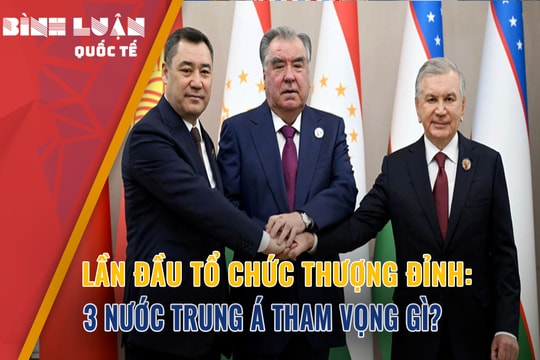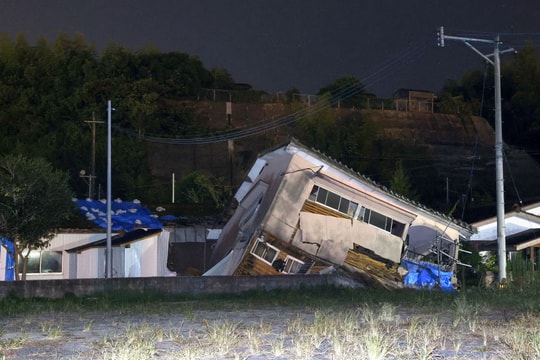South Korea joins hands with Central Asia to promote “New Northern Policy”
(Baonghean) - From April 16 to April 23, South Korean President Moon Jae-in began an 8-day visit to three Central Asian countries: Turkmenistan, Uzbekistan and Kazakhstan.
Strengthening economic cooperation, strengthening trust and enhancing strategic partnership are the goals set by the Korean leader during this visit. With a geostrategic location in the heart of Asia, according to observers, the three destinations of the Korean President this time are all important partners in the “New Northern Policy” initiative that this country is promoting.
 |
| Uzbekistan President Shavkat Mirziyoyev and South Korean President Moon Jae-in during a visit to South Korea in 2017. Source: Getty |
Don't be late!
It is undeniable that the three Central Asian countries of Turkmenistan, Uzbekistan and Kazakhstan have a geostrategic position both economically and militarily; they are the center of the Asian region, located between Russia and China. With abundant resources, especially oil and gas, it is understandable that these Central Asian countries have become areas of special interest to major countries such as Russia, the US, China, Japan, etc., even competing fiercely for influence.
It should be noted that Central Asia is a region that has been historically strongly influenced by Russia. Meanwhile, in recent years, China has been rapidly expanding its trade activities with Beijing. Or like the US, since 1999, Washington has wanted to build this region into a “silk road”, turning Central Asia into a dynamic economic region, connecting Afghanistan with countries in Central and South Asia… In the face of an increasingly heated race, it is clear that South Korea cannot be slow!
This visit to the three Central Asian countries is President Moon Jae-in's first trip to the region since taking office in 2017. A rich and dense program has been planned for the entire 8-day trip. At the first stop, Turkmenistan, President Moon Jae-in will hold a summit with President Gurbanguly Berdimuhamedow, discussing measures to promote bilateral cooperation and prosperity.
A meeting to enhance the strategic partnership will also be held with President Shavkat Mirziyoyev during the second stop in Uzbekistan. Not missing the opportunity to strengthen trust and mutually beneficial cooperation with the new government of Kazakhstan, President Moon Jae-in will also have a summit with the country's new President Kassym-Jomart Tokayev.
Right before the visit, the South Korean Presidential Office also announced that this trip aims to develop long-term and sustainable relations between Korea and the three Central Asian countries. One of the important bridges is the historical and cultural connection with the large Korean community here.
Win-win
 |
| South Korean President Moon Jae-in and the goal of strengthening relations with Central Asian partners. Source: Yonhap |
Countries in the Central Asian region are rich in natural resources, but in reality, their terrain is mountainous and deserted. Therefore, in order to improve their production capacity, the governments of these countries need to focus on training human resources as well as equipment and infrastructure to adapt. Understanding this need, Korea has not missed the opportunity to become an effective partner of countries in the region.
Remember that at the end of 2017, the Korean government decided to support a loan of 500 million USD over 3 years for Uzbekistan through the Economic Development Cooperation Fund (EDCF). The two sides also agreed that the Export-Import Bank of Korea would provide financial support of 2 billion USD for bilateral cooperation projects in Uzbekistan. Recently, on March 27, the meeting between Korean Foreign Minister Kang Kyung-wha and Uzbekistan Deputy Prime Minister Elyor Ganiev in Seoul also continued to write a roadmap to strengthen bilateral economic cooperation between the two sides. Uzbekistan is also the country with the largest population of Koreans, about 200,000 people.
Meanwhile, with Turkmenistan, the two sides have also strengthened cooperation in many fields, especially the economy with many billion-dollar projects. Typical examples include the contract to modernize the oil refinery infrastructure in Turkmenistan worth 940 million USD or a contract to build a gas production plant in this country worth 3.89 billion USD, which was signed in 2015. The Turkmenistan government also hopes that Korea will have more companies participating in development projects at the Galkynysh gas field - which has the second largest reserves in the world. With such a good foundation, there is no reason why the parties should not move towards new contracts and agreements between Korea and Central Asian countries during this visit of President Moon Jae-in!
Multiple strategic goals
Not only focusing on economic cooperation, in fact, Central Asian countries including Turkmenistan, Uzbekistan and Kazakhstan are part of the "New Northern Policy", which was introduced by President Moon Jae-in in the framework of the 3rd Eastern Economic Forum held in September 2017 in Vladivostok, Russia. According to the South Korean President, North Korea has diplomatic relations with 5 Central Asian countries, so warming up relations with these countries is also a direction for South Korea to seek more supportive voices on the North Korean nuclear issue. Especially in the context that the North Korean dossier has recently shown many positive signals from many sides.
Meanwhile, on the side of Central Asian countries, it is a fact that since the collapse of the Soviet Union in 1991, new countries in the post-Soviet space have established the Commonwealth of Independent States (CIS) mechanism. The goal of this mechanism is to create an institution capable of solving security, economic and energy issues in the region while gradually escaping the influence of Russia. Therefore, it is understandable that in recent times, typical Central Asian countries such as Kazakhstan have continuously upgraded their relations with the US, the European Union (EU) or China. Of course, the South Korean partner with the leading developed economy in the region is also one of the good choices for Central Asian countries to diversify their relationships, seek cooperation agreements to be more autonomous in all aspects.
However, on the other hand, according to analysts, despite having the geostrategic advantage of being the center of the struggle for influence, Central Asian countries need to be more cautious than ever, avoiding falling into a vicious circle and the risk of instability in confrontations between major countries. Therefore, perhaps, not only in this visit of South Korean President Moon Jae-in but also in many other handshakes, Central Asian countries will not be too biased towards any side. And that, taking advantage and choosing beneficial cooperation agreements but not being too dependent, can be said to be the most suitable move for Central Asian countries in the current context!



.jpg)

